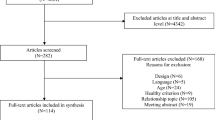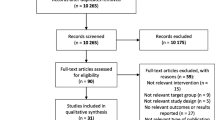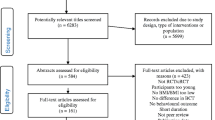Abstract
Objective
To assess weight-related beliefs and concerns of overweight urban, African-American children, their parents, and community leaders before developing a family-based intervention to reduce childhood overweight and diabetes risk.
Design
We conducted 13 focus groups with overweight children and their parents and eight semistructured interviews with community leaders.
Participants and Setting
Focus group participants (N = 67) from Chicago’s South Side were recruited through flyers in community sites. Interview participants (N = 9) were recruited to sample perspectives from health, fitness, education, civics, and faith leaders.
Results
Community leaders felt awareness was higher for acute health conditions than for obesity. Parents were concerned about their children’s health, but felt stressed by competing priorities and constrained by lack of knowledge, parenting skills, time, and financial resources. Parents defined overweight in functional terms, whereas children relied upon physical appearances. Children perceived negative social consequences of overweight. Parents and children expressed interest in family-based interventions to improve nutrition and physical activity and offered suggestions for making programs interesting.
Conclusions
This study provides insights into the perspectives of urban, African-American overweight children, their parents, and community leaders regarding nutrition and physical activity. The specific beliefs of these respondents can become potential leverage points in interventions.
Similar content being viewed by others
References
Burnet DL, Plaut A, Courtney R, Chin M. Preventing type 2 diabetes in minority youth: a practical model and empirical evidence. Diabetes Educ. 2002;28:779–95.
Kimm SYS, Barton BA, Berhane K, et al. Self-esteem and adiposity in black and white girls: the NHLBI Growth and Health Study. Ann Epidemiol. 1997;7:550–60.
Wilson DB, Sargent R, Dias J. Racial differences in selection of ideal body size by adolescent females. Obes Res. 1994;2:38–43.
McNabb W, Quinn M, Kerver J, Cook S, Karrison T. The PATHWAYS church-based weight loss program for urban African American women at risk for diabetes. Diabetes Care. 1997;20:1518–23.
US Census Bureau. 2002 economic census ZIP code statistics. Available at http://www.census.gov/epcd/www/zipstats.html. Accessed 1/2/2007.
Glaser B. Basics of Grounded Theory Analysis. Mill Valley, CA: Sociology Press; 1992.
Walcott-McQuigg JA, Xerwic JJ, Dan A, Kelley MA. An ecological approach to physical activity in African American women. Medscape Womens Health. 2001;6:3.
Wilcox S, Richter DL, Henderson KA, Greaney ML, Ainsworth BE. Perceptions of physical activity and personal barriers and enablers in African American women. Ethn Dis. 2002;12(3):353–62.
Jain A, Sherman SN, Chamberlin DL, Carter Y, Powers SW, Whitaker RC. Why don’t low-income mothers worry about their preschoolers being overweight? Pediatrics. 2001;107:1138–46.
Prochaska JO, DiClemente CC. Transtheoretical therapy: toward a more integrative model of change. Psychotherapy (Chic Ill) 1982;19:276–88.
Domel SB, Alford BB, Cattlett HN, Gench BE. Weight control for Black women. J Am Diet Assoc. 1992;92:346–8.
Kumanyika SK, Charleston JB. Lose weight and win: a church-based weight loss program for blood pressure control among Black women. Patient Educ Couns. 1992;19:19–32.
Kanders BS, Ullmann-Joy P, Foreyt JP, et al. The Black American Lifestyle Intervention (BALI): the design of a weight loss program for working-class African American women. J Am Diet Assoc. 1994;94:310–2.
Bush PJ, Zuckerman AE, Theiss PK. Cardiovascular risk factor prevention in Black schoolchildren: two-year results of the “Know Your Body” program. Am J Epidemiol. 1989;129:466–82.
Resnicow K, Yaroch AL, Davis A, et al. GO GIRLS!: results from a nutrition and physical activity program for low-income, overweight African American adolescent females. Health Educ Behav. 2000;27:616–31.
Stolley MR, Fitzgibbon ML. Effects of an obesity prevention program on the eating behavior of African American mothers and daughters. Health Educ Behav. 1997;24:152–64.
Wadden TA, Stunkard AJ, Rich L, Rubin CJ, Sweidel G, McKinney S. Obesity in Black adolescent girls: a controlled clinical trial of treatment by diet, behavior modification, and parental support. Pediatrics. 1990;85:345–52.
Fitzgibbon ML, Prewitt TE, Blackman LR, et al. Quantitative assessment of recruitment efforts for prevention trials in two diverse Black populations. Prev Med. 1998;27:838–45.
Epstein LH, Valoski A, Wing RR, McCurley J. Ten-year outcomes of behavioral family-based treatment for childhood obesity. Health Psychol. 1994;13:373–83.
Resnicow K, Baranowski T, Ahluwalia JS, Braithwaite RL. Cultural sensitivity in public health: defined and demystified. Ethn Dis. 1999;9:10–21.
Acknowledgments
This project was supported by grant P60 DK20595 from the National Institute of Diabetes and Digestive and Kidney Diseases of the National Institutes of Health, Bethesda, MD to the Diabetes Research and Training Center at the University of Chicago, NIH Pilot and Feasibility Grant DK020595 through the University of Chicago’s Section of Endocrinology, and Pilot and Feasibility Grant DK42086 through the Section of Gastroenterology. Ms. Ossowski was supported by NIH grant 5T35GMO8140-15 while in the University of Chicago Pritzker School of Medicine Summer Research Program. Dr. Burnet’s research is supported by an NIH career development award K23 DK064073-01. Dr. Chin is supported by a Midcareer Investigator Award in Patient-Oriented Research from the National Institute of Diabetes and Digestive and Kidney Diseases K24 DK071933 and was a Robert Wood Johnson Foundation Generalist Physician Faculty Scholar.
Conflict of Interest Statement
None disclosed.
Author information
Authors and Affiliations
Corresponding author
Electronic Supplementary Material
Below is the link to the electronic supplementary material.
ESM
(DOC 43.0 kb)
Rights and permissions
About this article
Cite this article
Burnet, D.L., Plaut, A.J., Ossowski, K. et al. Community and Family Perspectives on Addressing Overweight in Urban, African-American Youth. J GEN INTERN MED 23, 175–179 (2008). https://doi.org/10.1007/s11606-007-0469-9
Received:
Revised:
Accepted:
Published:
Issue Date:
DOI: https://doi.org/10.1007/s11606-007-0469-9




